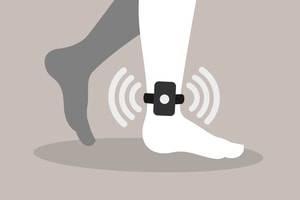Recent Blog Posts
Why Do Some DWI Defendants Choose Jail Over Probation?
 A first-time conviction for driving while intoxicated often does not include any jail time for the offender. Texas law does not require jail for a first-time offense, and courts prefer to give probation. However, some people choose to serve jail time instead of accepting the conditions of probation. Why would a defendant reject the chance to avoid jail time? For some, it is a matter of cost, hassle, and the duration of probation.
A first-time conviction for driving while intoxicated often does not include any jail time for the offender. Texas law does not require jail for a first-time offense, and courts prefer to give probation. However, some people choose to serve jail time instead of accepting the conditions of probation. Why would a defendant reject the chance to avoid jail time? For some, it is a matter of cost, hassle, and the duration of probation.
Hassle
There are several conditions to being on probation, and violating them may result in you going to jail. People on probation for a DWI conviction often must:
- Regularly report to a probation officer;
- Abstain from drinking alcohol;
- Submit to random alcohol breath tests;
- Install an ignition interlock device on their vehicles;
- Attend counseling or classes;
- Perform community service; and
- Remain in their county of residence, unless they receive court permission.
Reasons You Should Not Plead Guilty for DWI
 When facing a charge of driving while intoxicated in Texas, it can sometimes feel like your case is hopeless. Prosecutors may present convincing evidence, such as chemical tests and testimony from the arresting officer and other witnesses. You may be tempted to plead guilty to the charge in order to expedite the process and possibly receive a lighter sentence. However, it is worth your effort to contest your DWI charge instead of resigning yourself to being convicted. There are several consequences to a DWI conviction that you want to avoid if possible:
When facing a charge of driving while intoxicated in Texas, it can sometimes feel like your case is hopeless. Prosecutors may present convincing evidence, such as chemical tests and testimony from the arresting officer and other witnesses. You may be tempted to plead guilty to the charge in order to expedite the process and possibly receive a lighter sentence. However, it is worth your effort to contest your DWI charge instead of resigning yourself to being convicted. There are several consequences to a DWI conviction that you want to avoid if possible:
- Sentencing: A first-time DWI offense, which is the most basic offense, can result in as long as 180 days in jail, a fine of as much as $2,000, and a driver’s license suspension for as long as a year. The penalties increase if you have any aggravating factors, such as a DWI charge with a blood alcohol concentration of 0.15 or greater or if someone was injured during the incident. Previous DWI convictions on your record will also raise the level of the charge.
What Evidence Is Used in a DWI Case with Prescription Drugs?
Evidence
An arrest for DWI with prescription drugs will likely start the same way as DWI with alcohol. The officer may stop you because you have committed a traffic violation or appear to be driving erratically. During the stop, the officer will look for signs of impairment from your appearance and behavior. Evidence used in cases of DWI with prescription drugs may include:
Court Strikes Down Exigency Claim, Warrantless Blood Test
 The Texas Court of Criminal Appeals recently upheld a trial court’s decision to bar a blood sample from being used in a high-profile driving while intoxicated case. In The State of Texas v. Joel Garcia, the defendant has been charged with three counts of intoxication manslaughter for allegedly being under the influence of alcohol and cocaine during a fatal traffic accident. The trial court judge approved the defendant’s request to suppress the test results from a blood sample that police obtained without a warrant. The Texas Eighth District Court of Appeals overturned that ruling, stating that exigent circumstances permitted police to forgo the warrant. The Court of Criminal Appeals, the state’s highest criminal appeals court, reinstated the trial court’s ruling.
The Texas Court of Criminal Appeals recently upheld a trial court’s decision to bar a blood sample from being used in a high-profile driving while intoxicated case. In The State of Texas v. Joel Garcia, the defendant has been charged with three counts of intoxication manslaughter for allegedly being under the influence of alcohol and cocaine during a fatal traffic accident. The trial court judge approved the defendant’s request to suppress the test results from a blood sample that police obtained without a warrant. The Texas Eighth District Court of Appeals overturned that ruling, stating that exigent circumstances permitted police to forgo the warrant. The Court of Criminal Appeals, the state’s highest criminal appeals court, reinstated the trial court’s ruling.
Exigency
The Fourth Amendment to the U.S. Constitution requires law enforcement to present a suspect with a warrant before conducting a search, which includes the drawing of blood to test for intoxication. Courts may allow prosecutors to present evidence that was obtained without a search warrant if there was an immediate danger of losing the evidence if law enforcement had waited for the warrant to be issued. In The State of Texas v. Joel Garcia, prosecutors claimed three exigent circumstances that necessitated drawing the blood immediately:
Different Forms of Alcohol Monitoring Devices
 Texas courts can mandate that a defendant convicted for driving while intoxicated must use an ignition interlock device in his or her vehicle. The DWI offender must provide a breath sample in order to start the vehicle and continue to give samples periodically while driving. The device will report any sample that contains traces of alcohol to the court, which may punish the user for violating the terms of his or her probation. An ignition interlock is the most common type of alcohol monitoring device, but people suspected or convicted of DWI may be required to use other devices.
Texas courts can mandate that a defendant convicted for driving while intoxicated must use an ignition interlock device in his or her vehicle. The DWI offender must provide a breath sample in order to start the vehicle and continue to give samples periodically while driving. The device will report any sample that contains traces of alcohol to the court, which may punish the user for violating the terms of his or her probation. An ignition interlock is the most common type of alcohol monitoring device, but people suspected or convicted of DWI may be required to use other devices.
In-Home Testing
A court may order a DWI offender to use a portable alcohol monitoring device as an alternative to an ignition interlock device if the offender:
- Does not have his or her own vehicle;
- Shares his or her vehicle with others; or
- Has not complied with using the ignition interlock device.
Wrong-Way Driving Makes DWI Case More Difficult to Contest
 You will occasionally see news stories about a person who was arrested on suspicion of driving while intoxicated after police found him or her driving the wrong way on a highway exit ramp. Driving the wrong way on a road is dangerous but not a serious offense by itself. In Texas, it is a traffic violation with a fine of as much as $200. You would need to commit the offense four times within a year in order for your driver’s license to be suspended. If prosecutors charge you with reckless driving, the maximum jail sentence upon conviction would be 30 days. However, driving the wrong way on a road could hurt your defense against a DWI charge in several ways:
You will occasionally see news stories about a person who was arrested on suspicion of driving while intoxicated after police found him or her driving the wrong way on a highway exit ramp. Driving the wrong way on a road is dangerous but not a serious offense by itself. In Texas, it is a traffic violation with a fine of as much as $200. You would need to commit the offense four times within a year in order for your driver’s license to be suspended. If prosecutors charge you with reckless driving, the maximum jail sentence upon conviction would be 30 days. However, driving the wrong way on a road could hurt your defense against a DWI charge in several ways:
- You Are Conspicuous: In order to conduct a DWI stop, a police officer must have reason to believe that you are committing a traffic violation or are a danger to yourself or others. Driving the wrong way on a road qualifies as both. Even if a police officer is not there to witness it, other drivers will notice and likely report it. Authorities sometimes set up traffic cameras at highway exit ramps in order to identify people who drive the wrong way. If you are identified as the driver, you will have a difficult time claiming that the stop was not justified.
Out-of-State DWI Can Follow You Back to Texas
 You may be familiar with the Texas laws regarding driving while intoxicated, but what happens if you are charged and convicted for DWI in another state? Do the penalties from another state also apply in Texas? What if you are a visitor to Texas who is charged with DWI? Your criminal case would take place in the state where you are charged. If convicted, you could pay fines and serve jail time in that state. However, some DWI penalties, such as a driver’s license suspension, can be transferred to your home state.
You may be familiar with the Texas laws regarding driving while intoxicated, but what happens if you are charged and convicted for DWI in another state? Do the penalties from another state also apply in Texas? What if you are a visitor to Texas who is charged with DWI? Your criminal case would take place in the state where you are charged. If convicted, you could pay fines and serve jail time in that state. However, some DWI penalties, such as a driver’s license suspension, can be transferred to your home state.
Interstate Compact
Texas is one of 45 states that are members of the Driver License Compact Commission. Participating states agree to share information about any traffic violations and convictions with the subject’s home state. A state court’s authority is limited to your activities within that state. Thus, it cannot suspend your driving privileges within another state. With the Interstate Compact, your home state will know about your DWI arrest or conviction and has agreed to suspend your license as if you committed the offense in your home state.
Differences Between Juvenile, Adult Court in DUI Case
 The top concern for a youth charged with driving under the influence of alcohol is to prevent that charge from ruining his or her life. A criminal record could limit his or her options when going to college or looking for a job. Spending time in jail is a jarring experience that may do more to traumatize a youth than rehabilitate him or her. In Texas, the age of a youth charged with DUI makes a significant difference. A juvenile court hears DUI cases for defendants age 16 and younger, while defendants age 17 to 20 are tried as adults.
The top concern for a youth charged with driving under the influence of alcohol is to prevent that charge from ruining his or her life. A criminal record could limit his or her options when going to college or looking for a job. Spending time in jail is a jarring experience that may do more to traumatize a youth than rehabilitate him or her. In Texas, the age of a youth charged with DUI makes a significant difference. A juvenile court hears DUI cases for defendants age 16 and younger, while defendants age 17 to 20 are tried as adults.
Juvenile System
A DUI charge for someone age 16 or younger is a class C misdemeanor, which is punishable by:
- A maximum $500 fine;
- A minimum 60-day driver’s license suspension;
- 20 to 40 hours of community service; and
- Required completion of an alcohol awareness course.
The goal of the juvenile court system is to rehabilitate the youths it convicts without hindering their ability to be healthy adults. Juvenile records are automatically sealed from most background checks and can be permanently sealed if the person does not receive any more criminal charges. A juvenile court is unlikely to sentence a defendant to jail time, even if the juvenile had enough alcohol in his or her system to qualify for a charge of driving while intoxicated.
Prosecutors Predict Increase in New Year's Weekend DWI Arrests
 Texas Department of Public Safety troopers made 400 arrests for suspicion of driving while intoxicated during the Christmas and New Year’s weekends last year. Local and state law enforcement always anticipate an increase in DWI incidents during holidays, but prosecutors believe there may be even more arrests than normal because of the day of the week that New Year’s Day falls on. Having the weekend followed by New Year’s Eve on Monday and New Year’s Day on Tuesday could mean a long weekend of drinking leading up to the holiday.
Texas Department of Public Safety troopers made 400 arrests for suspicion of driving while intoxicated during the Christmas and New Year’s weekends last year. Local and state law enforcement always anticipate an increase in DWI incidents during holidays, but prosecutors believe there may be even more arrests than normal because of the day of the week that New Year’s Day falls on. Having the weekend followed by New Year’s Eve on Monday and New Year’s Day on Tuesday could mean a long weekend of drinking leading up to the holiday.
How Police Prepare
Local police departments often use public information campaigns to educate people about the dangers of drunk driving and the potential consequences if you are caught. For a major holiday, they prepare for an increased number of drunk drivers by increasing their own enforcement efforts:
- More police officers are on patrol, watching for drunk drivers on roads they are most likely to use;
Lawsuit Claims Texas's Driver Responsibility Program Unfair to Low-Income Offenders
 The Austin Community Law Center has filed a lawsuit against the state of Texas, challenging the state’s Driver Responsibility Program that levies fines against drivers whose licenses have been suspended for violations such as driving while intoxicated. The lawsuit, filed in conjunction with the national civil rights organization Equal Justice Under the Law, claims that the DRP disproportionately punishes low-income offenders who cannot afford the fines they are required to pay to regain their licenses. The lawsuit states that 1.4 million Texas residents have suspended driver’s licenses because they have not been able to pay the DRP surcharge.
The Austin Community Law Center has filed a lawsuit against the state of Texas, challenging the state’s Driver Responsibility Program that levies fines against drivers whose licenses have been suspended for violations such as driving while intoxicated. The lawsuit, filed in conjunction with the national civil rights organization Equal Justice Under the Law, claims that the DRP disproportionately punishes low-income offenders who cannot afford the fines they are required to pay to regain their licenses. The lawsuit states that 1.4 million Texas residents have suspended driver’s licenses because they have not been able to pay the DRP surcharge.
Fine System
A court may punish a person convicted for a traffic violation such as a DWI by sentencing him or her to prison, issuing a fine, and suspending his or her driver’s license. Texas’s Driver Responsibility Program imposes additional fines on people whose licenses have been suspended. As part of its program, the DRP:





